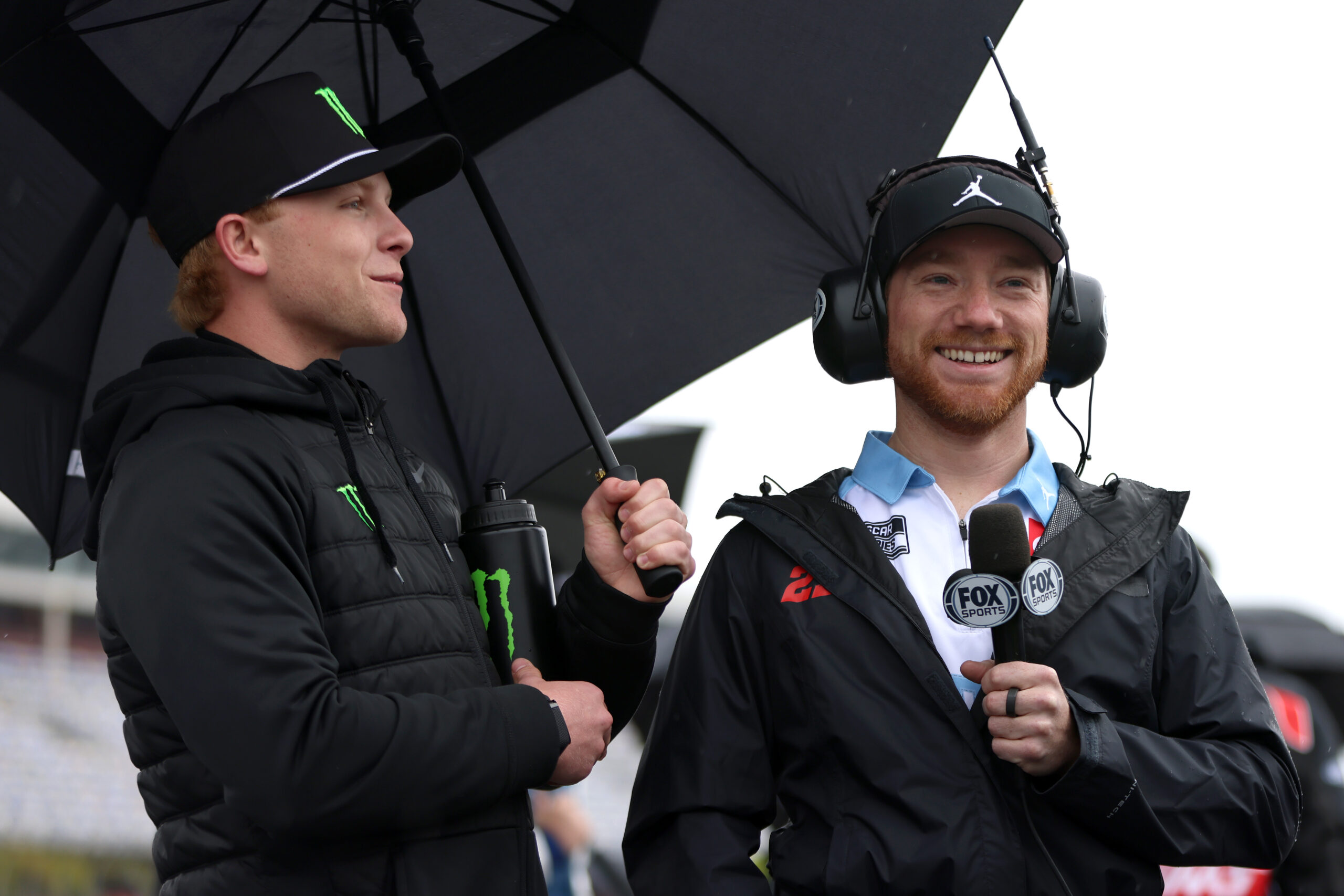
Lost in the drama of the playoffs and the potential for a new NASCAR Charter Agreement is a clause in that Charter Agreement that may affect the manner in which those in the sport can express themselves. This “anti-disparagement clause” could affect podcasts, interviews, and the sport as a whole.
This week, A notable post online was when Curtis Polk, an investor in Michael Jordan and Denny Hamlin’s 23XI Racing, wore a sign stating, “Please don’t ask me about my Charter. I don’t want to disparage NASCAR and lose it.”
Cup teams apparently got another charter offer from NASCAR this week. At least this member of the team owners negotiating committee (23XI’s Curtis Polk) doesn’t want to talk about it. pic.twitter.com/Zi3AiJjMJ3
— Bob Pockrass (@bobpockrass) September 1, 2024
What was funny on the surface to many fans now, according to Adam Stern of Sport’s Business Journal, has a much deeper meaning for the sport and its potential new Charter Agreement. Stern reports that along with other additions, NASCAR has added an “anti-disparagement clause” to the agreement.
Actions Detrimental is not just the name of 23XI owner Denny Hamlin’s podcast. It is an inside reference to the reasoning NASCAR has given for penalties to drivers in the past, which is a cruel joke about Hamlin’s actions in the past.
The NASCAR rule book includes the section “Actions Detrimental to Stock Car Racing.” This rule, found in Section 12, acts as a sticky trap for anything that NASCAR does not like.
This ruling has historically swept up statements critical of NASCAR, team orders, and actions on track. However, this new anti-disparagement clause could play a bit more into drivers’ free speech about NASCAR.
There have been times that drivers have made comments about the state of the sport with little impact from NASCAR, like when Kyle Busch, moments after winning the first Car of Tomorrow race, made his feelings about the new car known.
Of course, Busch is known for such comments, and NASCAR took the criticism on the chin. However, in 2013, Denny Hamlin shared his displeasure with the new Gen-6 car, and NASCAR fined him $25,000.
Drivers have also spoken out in the past about changes in the sport’s rules and systems with little pushback from NASCAR. For example, in 2019, Clint Bowyer almost single-handedly changed the qualifying format by speaking his mind.
NASCAR never took action against Bowyer for such critical comments.
They also didn’t act on Kevin Harvick in 2020. Harvick had put together his best season ever, but due to the playoff format, he wouldn’t walk away with a championship.
"These championships aren't like winning like Petty and Earnhardt used to win them. You have to put them together three weeks at a time."@KevinHarvick's nine-win season will not result in a @NASCAR championship. #NASCARPlayoffs pic.twitter.com/bV3TF1SLNW
— NASCAR on NBC (@NASCARonNBC) November 1, 2020
While Harvick’s comments didn’t cause any change, as NASCAR still has the playoffs, Bowyer’s did, for the most part, help spark a change in a poorly run system.
Now, if the anti-disparagement clause were to come into effect, owners and drivers could face the consequences of in-the-moment comments like these.
Away from the track, this clause could mean more for the NASCAR media landscape.
As previously stated, Denny Hamlin hosts Dirty Mo Media’s Action’s Detrimental podcast. As Hamlin always does, he speaks his mind about the sport on the podcast.
Letting it all out on his podcast had landed him in hot water before, like last season when he admitted to wrecking Ross Chastain on his podcast. NASCAR fined Hamlin for intentionally wrecking Chastain due to his comments on the podcast.
If the anti-disparagement clause were to become policy, drivers, and owners like Hamlin might be less likely to criticize NASCAR’s decisions on their podcasts or, in extreme circumstances, not do a podcast at all.
While NASCAR would allow them to do so, it may be too much for some drivers to be constantly walking on eggshells.
As a privately owned business, however, NASCAR has the right to do what it feels necessary to protect its sport. However, like Bowyer in 2019, criticism has helped the sport fix its problems in the past.
The charter agreement is still not finalized, and this clause may be stricken before then, but until then, it is just another twist in what has been a crazy 2024 season.
What are your thoughts on this? Let us know your opinions on Discord or X, and don’t forget you can also follow us on Instagram, Facebook, and YouTube.